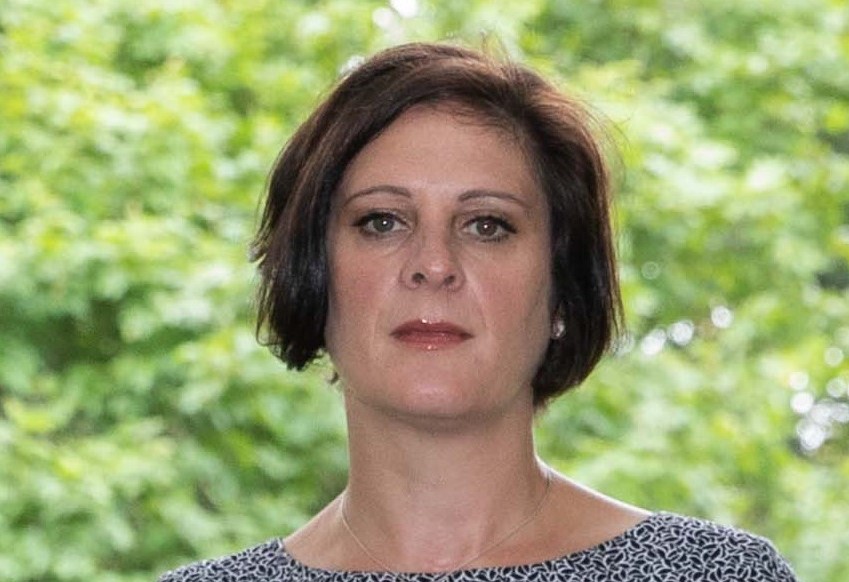Media Release Failures by Gardaí to respond to calls from domestic violence victims are of deep concern – Women’s Aid
Thursday 24th June 2021: Women’s Aid, a leading national support organisation for victims of domestic violence including coercive control, has said that reports today about failures by Gardaí to respond to calls from domestic violence victims are of deep concern.
Sarah Benson, CEO of Women’s Aid, says: “Women’s Aid have been made aware of the incidents reported today whereby some domestic violence calls were not responded to by Gardai, and this is obviously extremely troubling. A single call in an emergency situation to Gardai can be life changing for someone subjected to domestic violence – in a positive or negative way depending on how the call is dealt with. The Gardaí are a key frontline responder to combating and preventing the scourge of domestic abuse in Ireland, to protect victims and hold perpetrators to account. Public trust in their response is absolutely vital. The Garda response during Covid 19 to the policing of Domestic Abuse incidents, with the proactive Operation Faoiseamh, was very welcome and continues to be so. This situation with the Computer Aided Dispatch (CAD), and other emergency calls stands in stark contrast.”
Ms Benson continues:
“The Commissioner’s public apology coming today is very welcome. More importantly however, at the present moment what remains of critical importance is that there has been a full assessment of the calls in question, that an action plan is in place and underway to ensure a swift, sensitive and systematic outreach to those whose calls went unanswered and who may remain at high risk; to assess their safety and support needs. A complete root and branch revision of internal systems and practices must also be completed to ensure that such a grievous breach of procedure can never happen again.”
Ms Benson adds:
“Culture is critical also, and all members of the Gardaí must be reminded of their responsibilities under the Garda Domestic Abuse Policy and held to this standard. Women’s Aid has reached out and offered assistance in supporting training and awareness to assure a victim -centred approach is taken by all members equally no matter what their role in the force. This should underpin all Garda responses from the point when a person in need picks up the phone to ask for help, right through to when a criminal case may be concluded. The Women’s Aid Annual Impact Report 2020 published earlier this week showed that 64% of callers who said they had contacted the Gardaí said the response was helpful. However, 36% said it was unhelpful.”
Ms Benson concludes:
“We have been given assurance that all of these actions are current high priorities for An Garda Síochána as they work to rectify and learn from this situation, so that something of this gravity can never happen again.”
Women’s Aid remains available to anyone impacted by domestic abuse 24 hours a day, 7 days a week through the National Freephone Helpline 1800 341 900 to listen, believe and offer support and referral, if required, to all specialist services nationwide.
Ends.
For more information email christina.sherlock@Womensaid.ie or call 0879192457.
Notes for Editors/Producers:
- Women’s Aid is a national organisation providing support and information to women experiencing domestic violence through its Direct Services. It runs the only free, national, domestic violence 24hr helpline (1800 341 900, 24 hours, 7 days) with specialised trained staff and volunteers, accredited by the Helplines Partnership and with a Telephone Interpretation Service covering 170 languages for callers needing interpreting services as well as a Text Service for Deaf and Hard of Hearing women. The National Helpline also runs the Instant Messaging Support Service available daily on womensaid.ie.
- The 24hr National Freephone Helpline is a gateway to other local independent support services and refuges around the country.
- Women’s Aid also offers a Dublin-based Face-to-Face Support Services including one-to-one appointments, court accompaniment, a drop in Dolphin House Family Law Court and the High Risk Support Project.
- 29,717 contacts with Women’s Aid in 2020 included: 26,400 contacts with the 24hr National Freephone Helpline (24,110 calls responded to; 1,460 Instant Message support sessions; 830 Helpline Emails responded to) and 3,317 Face-to-Face Support Services in Greater Dublin area (524 One to One sessions; 1,781 Email and telephone support; 112 Court Accompaniments; 900 Drop in visits at Dolphin House.)
- 30,841 disclosures of abuse against women and children were made including 24,893 disclosures of domestic violence including coercive control against women. (17,321 emotional abuse; 4,792 physical abuse; 1,925 economic abuse; 855 sexual abuse, including 340 disclosures of rape) and 5, 948 disclosures of child abuse in the context of domestic violence.
- Perpetrator breakdown: 58% current male perpetrator; 24% ex-male partner; 11% other male; 7% female abuser.
- 95% of contacts with the National Helpline were from women. 5% were from men.
- There were 290,586 visits to www.womensaid.ie and 19,742 visits to toointoyou.ie
- According to the Women’s Aid Annual Impact Report 2020, 64% of callers who said they had contacted the Gardaí said the response was helpful. However, 36% said it was unhelpful.
- At least 1 in 4 women in Ireland are subjected to some form of abuse from a current or former partner. (EU Fundamental Rights Agency, Violence against women: An EU-wide survey, 2014).
- 1 in 5 young women, aged 18-25 years old, in Ireland experience had experienced intimate relationship abuse with 51% of these young women experiencing it for the first time before they were 18. (Women’s Aid, One in Five Women Report, November 2020).
